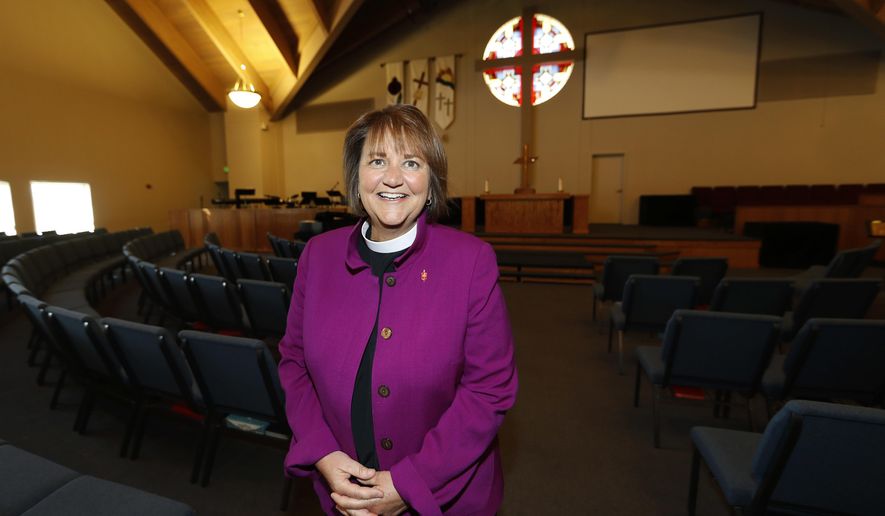NEWARK, N.J. (AP) - The highest court in the United Methodist Church considered Tuesday whether to invalidate the election of the denomination’s first openly gay bishop, amid a struggle to avoid schism over the Bible and same-sex relationships.
The challenge was filed last year to the election of Bishop Karen Oliveto, who is married to another woman. Church law bars clergy appointments of “self-avowed practicing homosexuals,” a stand that has come under increasing pressure from LGBT Methodists and their supporters as gay rights have made dramatic gains.
The 12.8 million-member denomination, the third-largest faith group in the United States, came close to fracturing last year at its legislative meeting, or General Conference. A commission has been searching for ways to stay united. On the eve of Tuesday’s hearing, Methodist bishops announced a special assembly for February 2019, in St. Louis, Missouri, dedicated exclusively to differences over church law related LGBT people.
The denomination has seen its greatest growth in recent years in Africa and other parts of the world where theologically conservative views prevail on marriage. Overseas Methodists have been standing with U.S. evangelicals to insist the church uphold the ban on clergy in same-sex relationships and discipline those who violate the policy.
The hearing Tuesday, in a hotel conference room in Newark, New Jersey, was closely watched, the subject of prayer and activism from around the church. Spectators lined the hall outside the hearing awaiting a security check to enter. Many wore rainbow-colored stoles and T-shirts that read, “United Methodist Queer Clergy #ComeOut.”
Oliveto sat in the front row surrounded by bishops from the church’s Western Jurisdiction, where she leads a region based in Denver. Across the aisle, the woman who filed the challenge, Dixie Brewster of the Oklahoma-based South Central Jurisdiction, sat with the Rev. Keith Boyette, an attorney who argued her case. Oliveto attended with her wife, her mother and her childhood pastor.
The three-hour discussion before the church Judicial Council largely focused on technical issues of church law, including whether regional jurisdictions alone have the authority to decide whom they can consecrate as bishops. Richard Marsh, who advocated on behalf of the Western Jurisdiction and defended the validity of Oliveto’s election, said throwing out the election results would “violate the structure” of the denomination by giving one region a say in another region’s choice of bishops. Boyette contended that allowing Oliveto’s election to stand would sow “chaos” in the denomination by allowing defiance of church law.
A ruling from the council is expected within a few days. Potential outcomes range from a narrow decision on procedure alone that keeps Oliveto in place to a decision that would void her election.
Oliveto was not required to speak at the hearing, but said after the session she had received “boxes and boxes” of letters, along with emails from people across the church, supporting her. She cried when recounting the messages from young LGBT people who tell her they have “heard from pulpits that they are not welcome,” or have been kicked out of their homes by their parents.
Oliveto said she was thinking about other gay and lesbian Methodist clergy “who have been serving in the silence of closets, in order to be faithful to God’s call.”
“I am not the first gay bishop,” she said, “and I won’t be the last.”




Please read our comment policy before commenting.